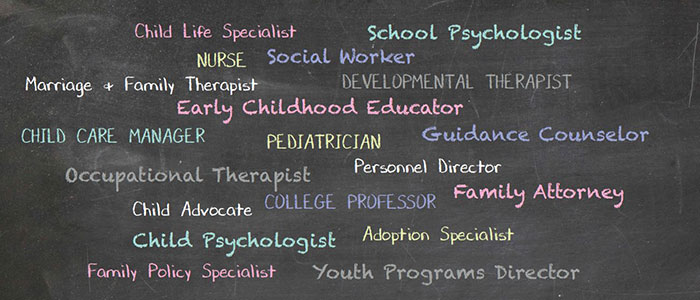In HDFS, we’re committed to the highest quality in academics and career development. Starting with HDFS 101, Issues and Careers in HDFS, and in each of our HDFS applied experience courses, we include career exploration and professional development activities designed to help you find your path to the future. In class and in extracurricular activities, you’ll find ample opportunities to gain practical pre-professional experience in our Child Development Laboratory, the Family Resiliency Center, Child Care Resource Service, and The Autism Program, as well as in the Champaign-Urbana community.

HDFS graduates go on to start careers in child care services, family life education, human services, pediatric services in hospitals, or business activities related to children or families. Many continue their education in graduate or professional school, earning credentials needed to become counselors, occupational therapists, marriage and family therapists, social workers, physicians, attorneys, and more.
To learn more about HDFS-related careers – including educational requirements, salaries, employment prospects and more, select a career area and click on your career.
